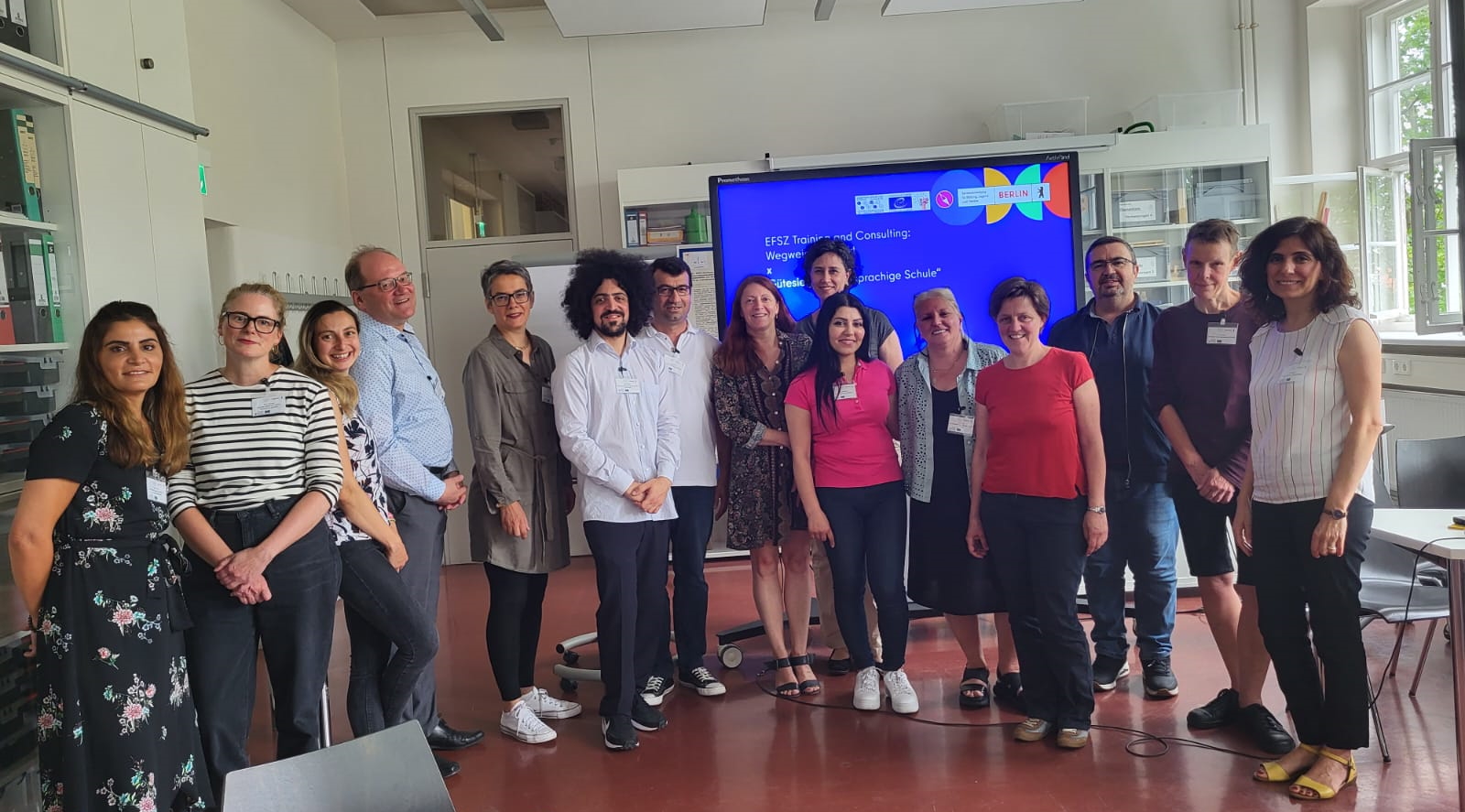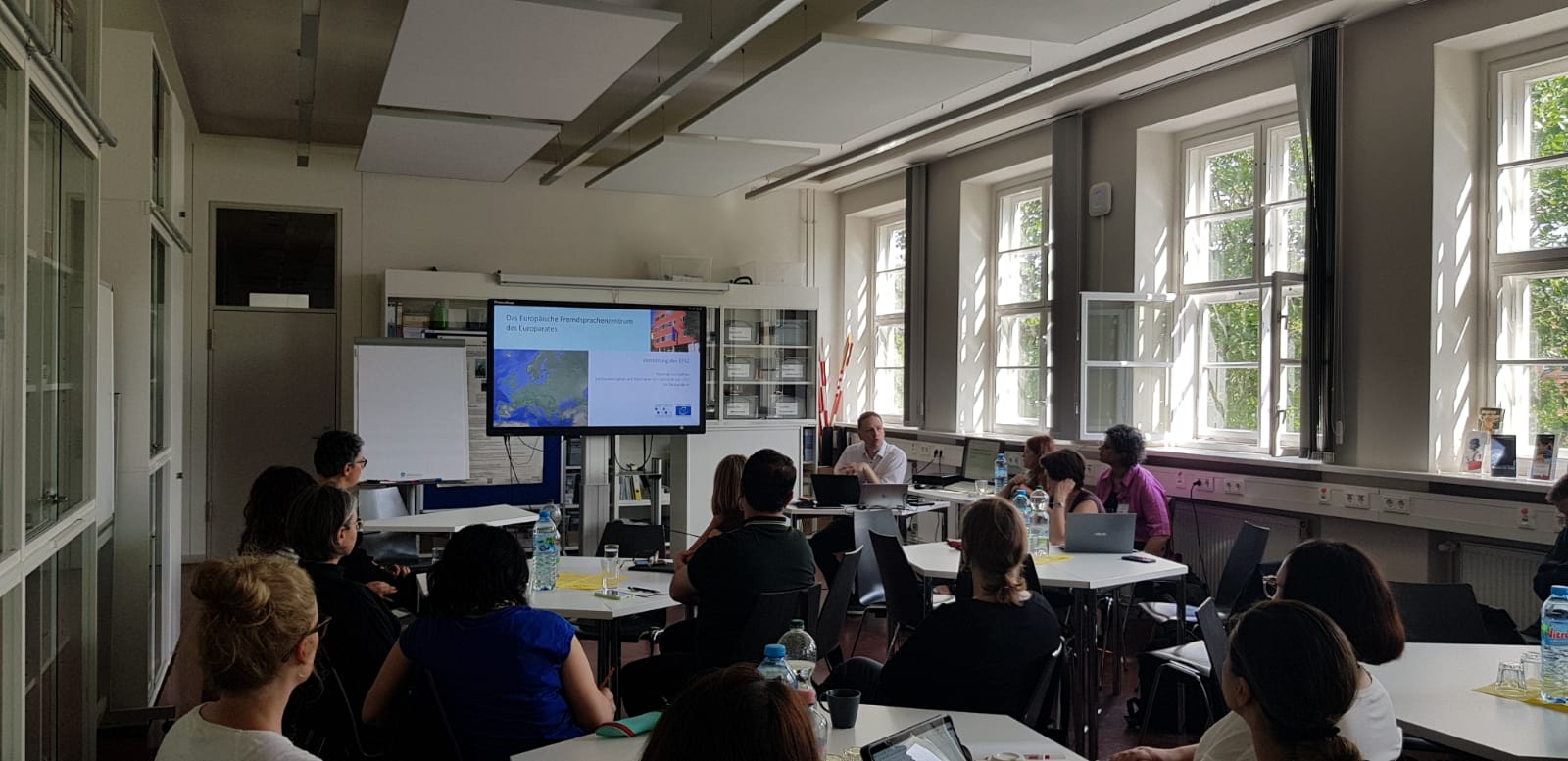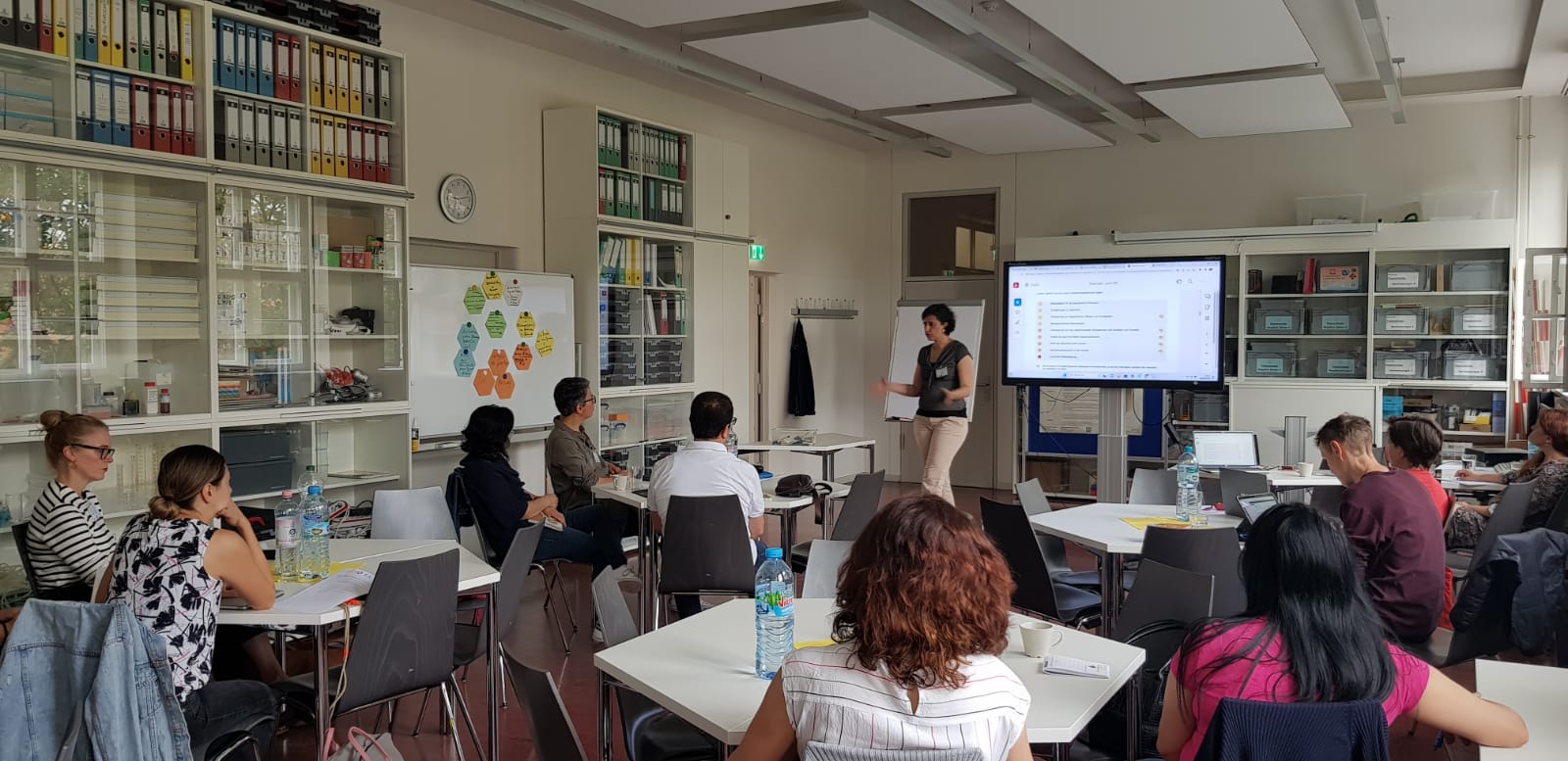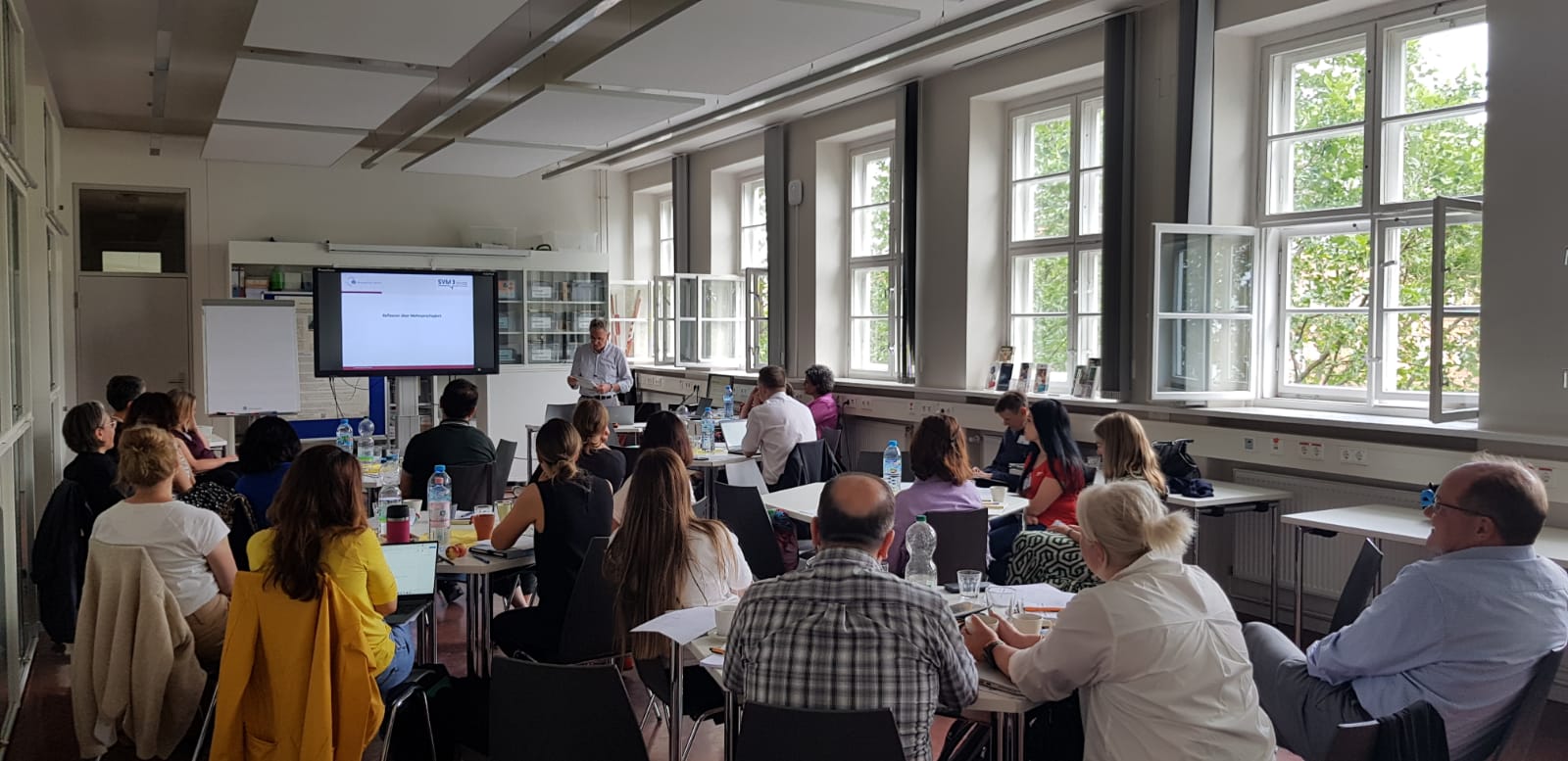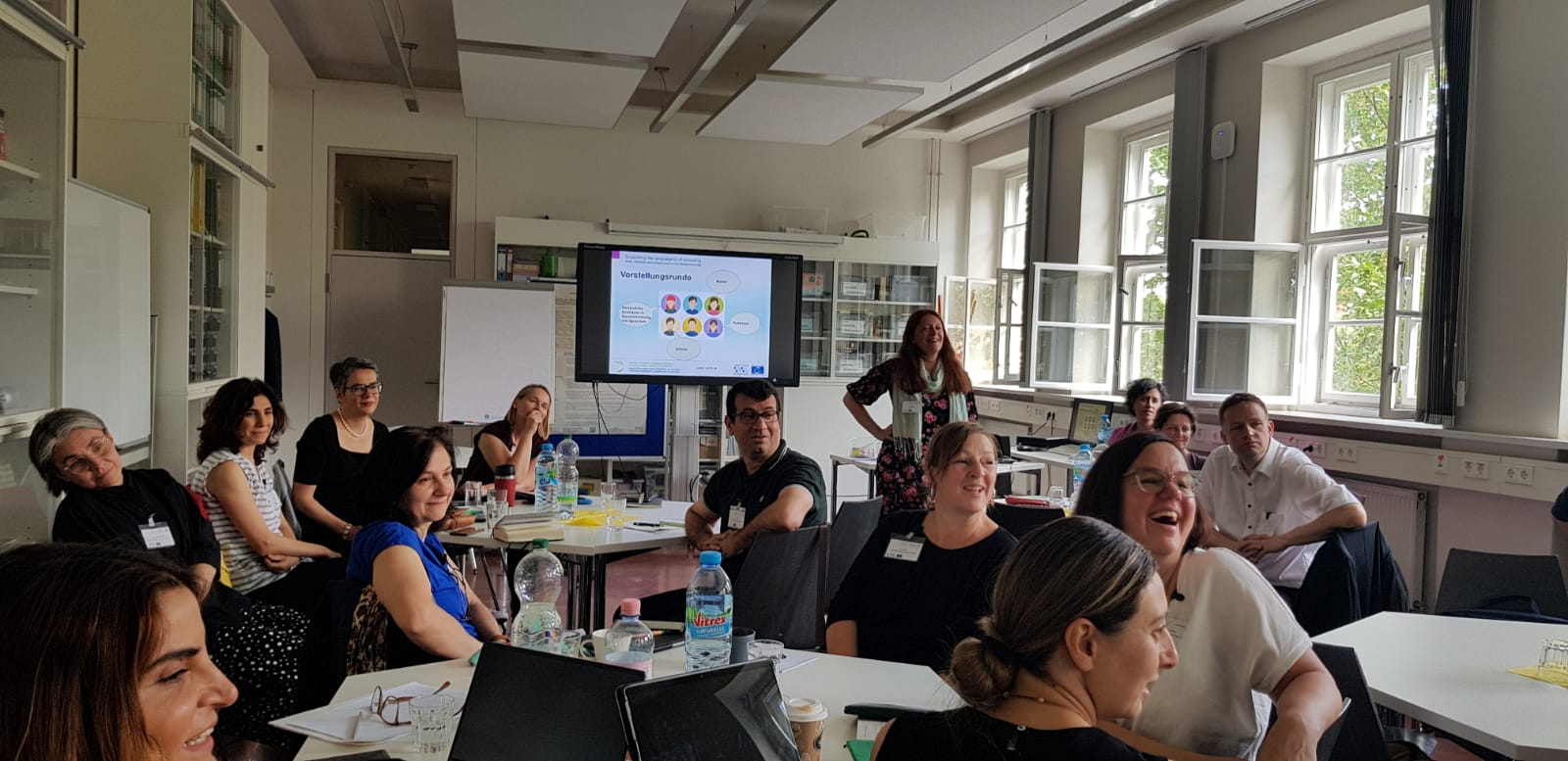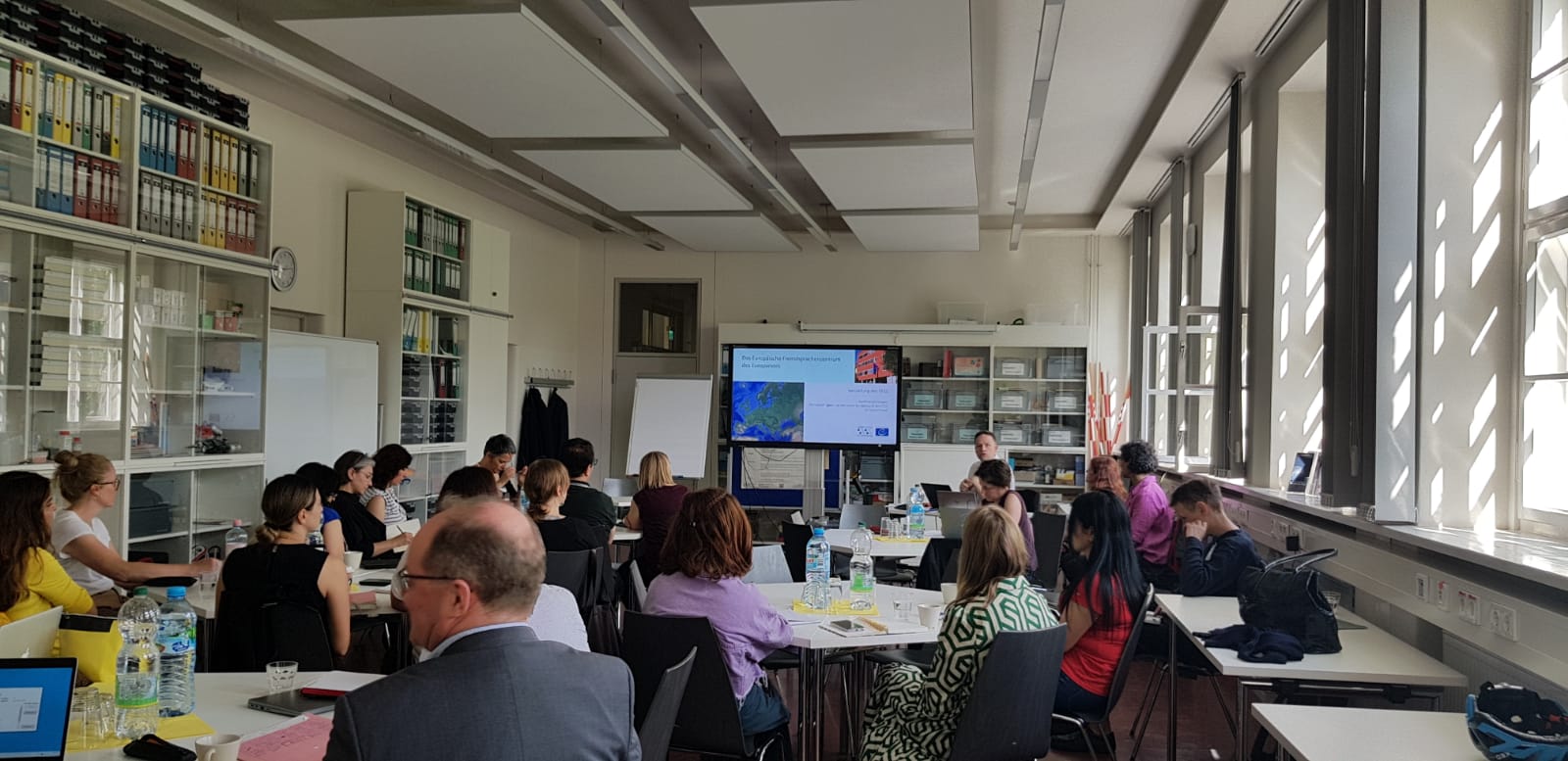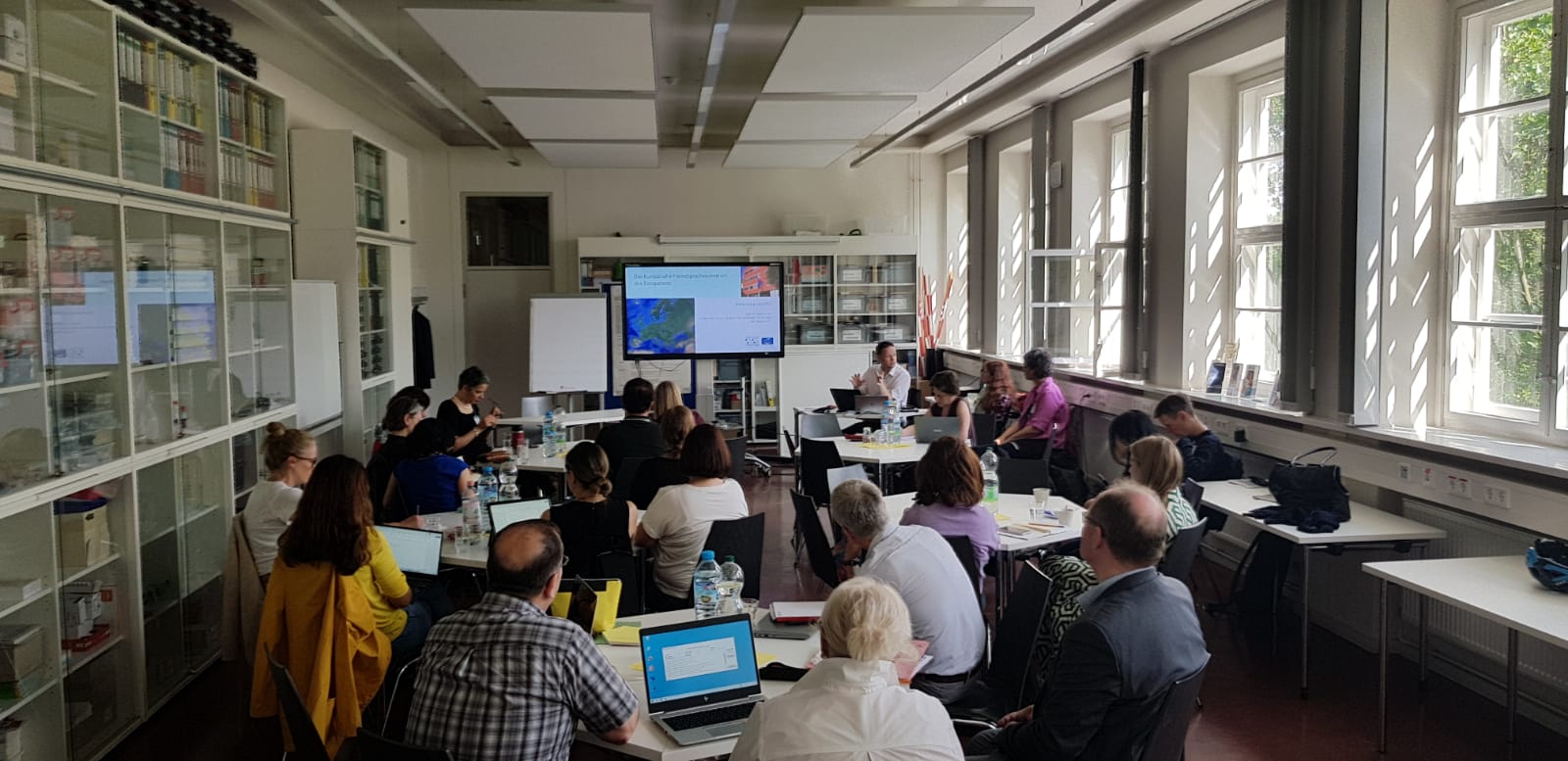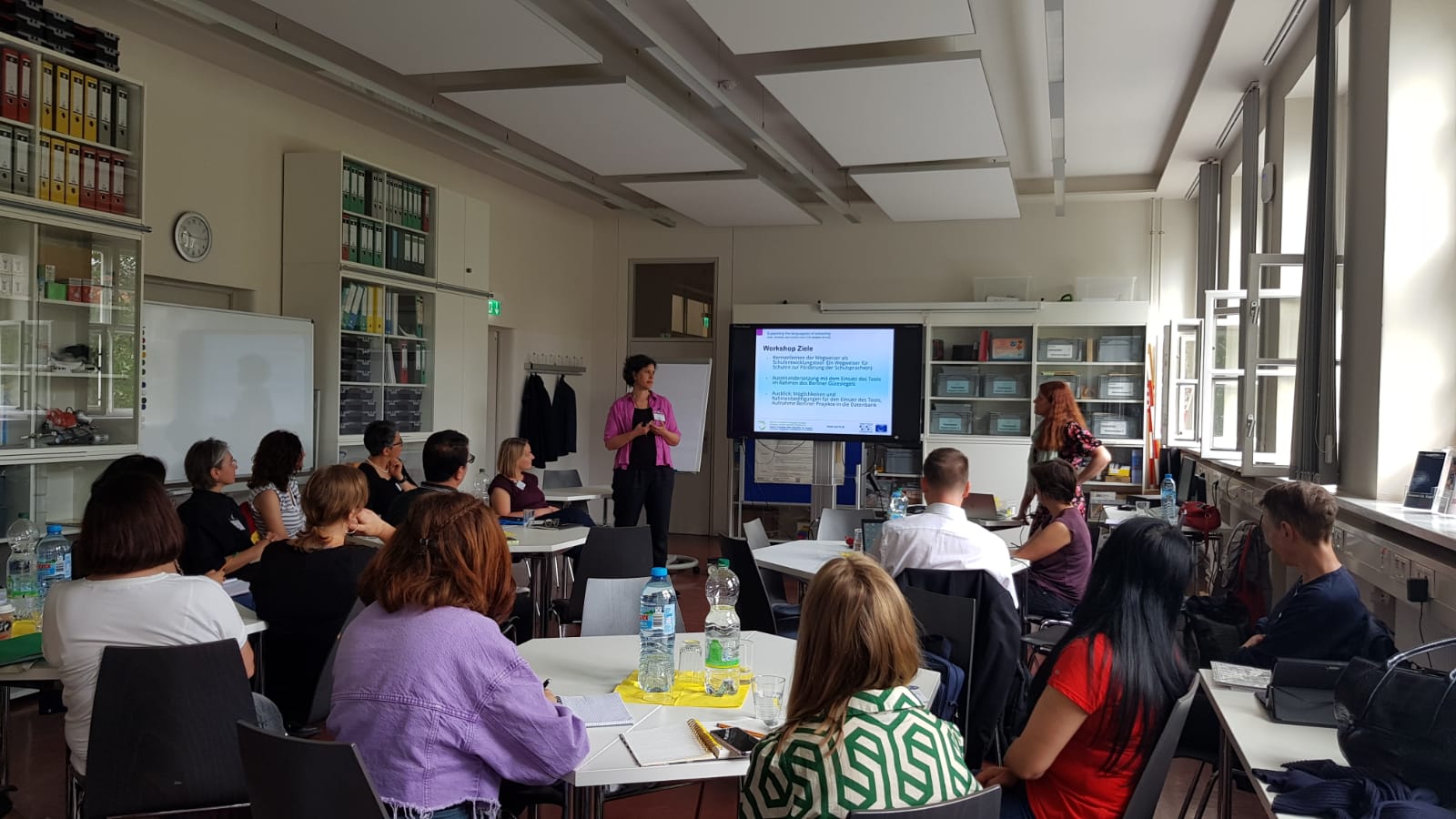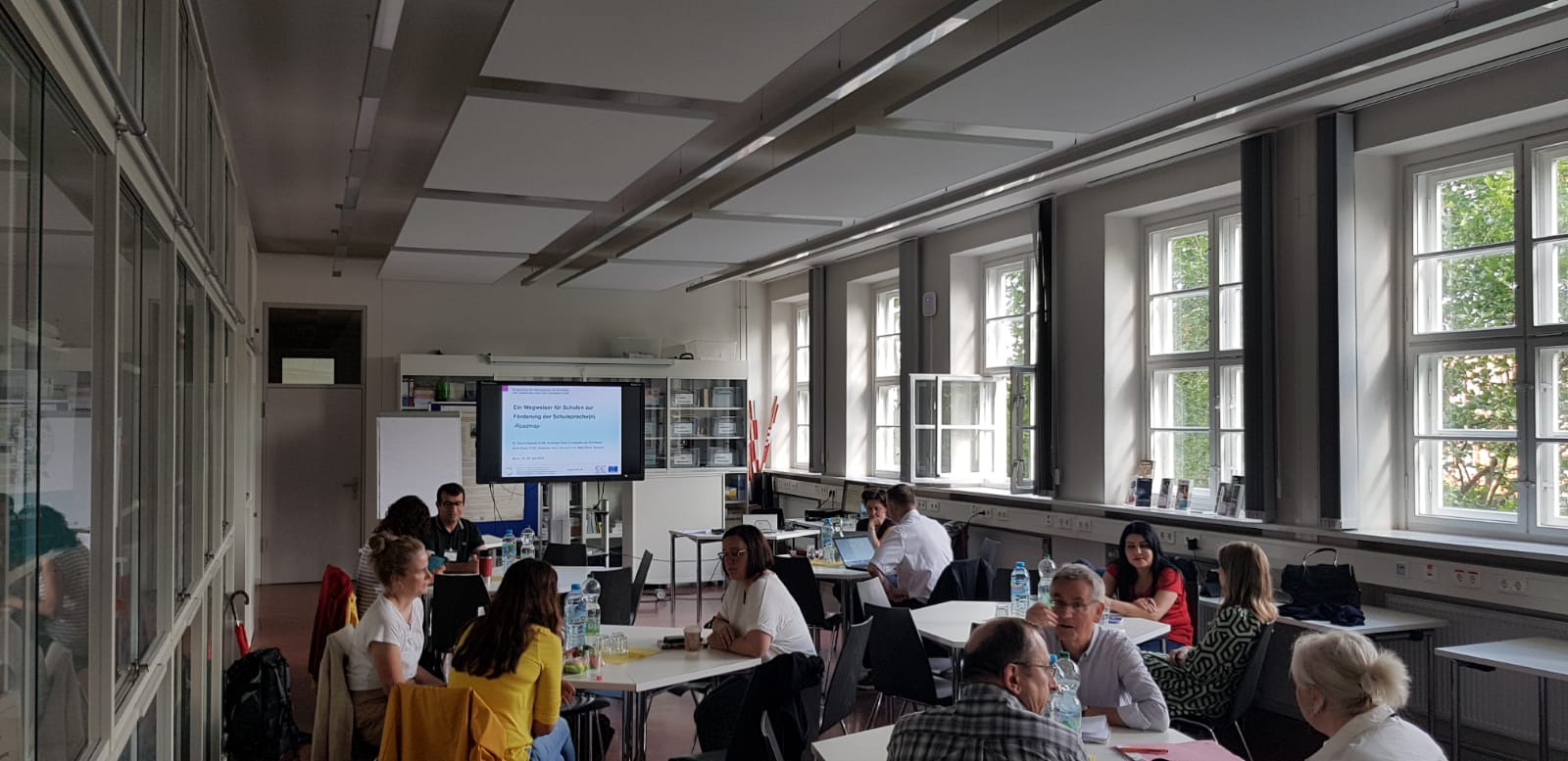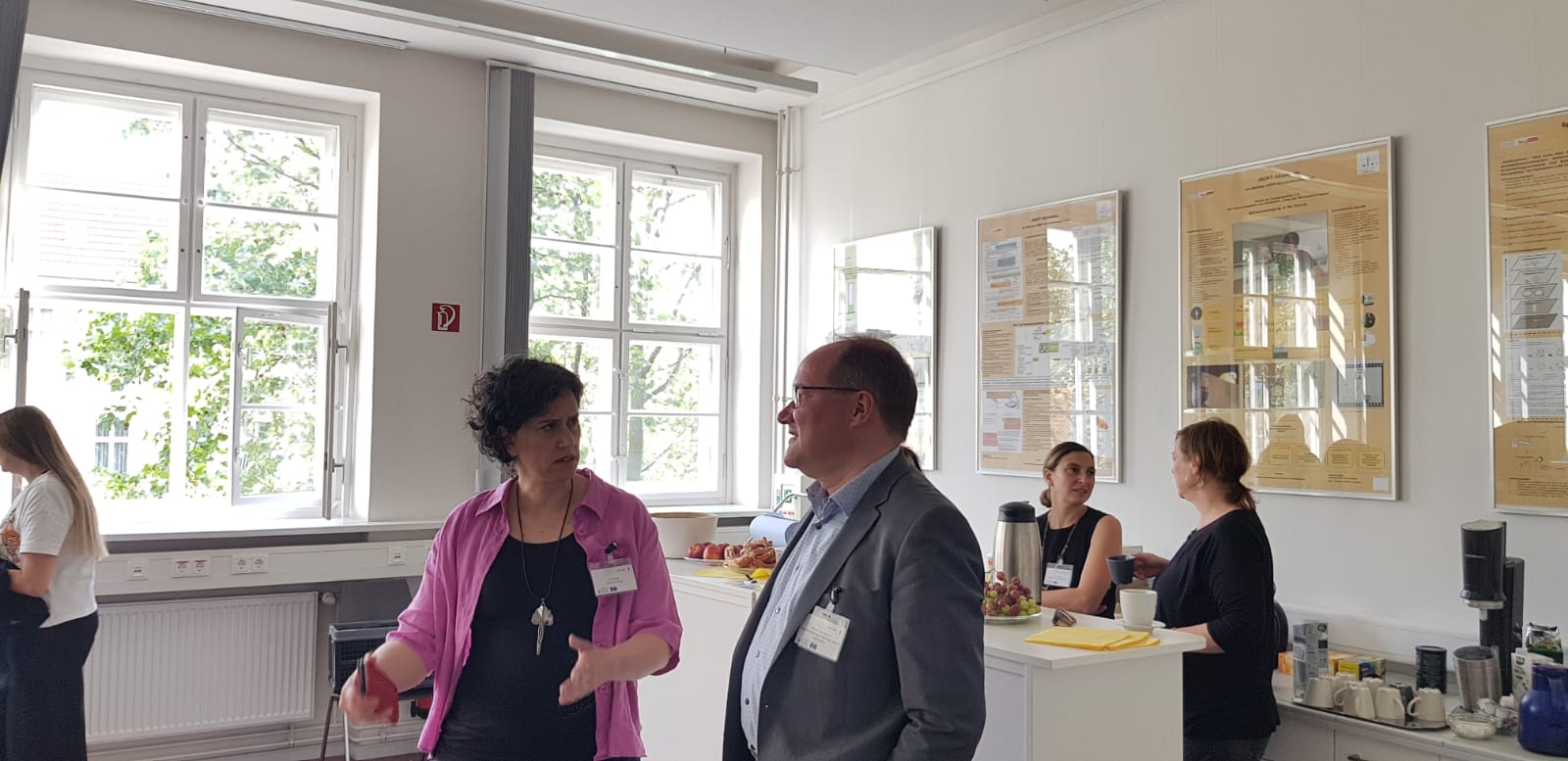Latest news items
08.11.2024
National training workshop: Supporting multilingual classrooms (30 – 31 October 2024, Wiesbaden, Germany)
Local organiser: Daniela Neumann, Hessian Ministry of Culture, Education and Opportunities
ECML experts: Catherine Carré-Karlinger (Austria), Chantal Muller (Belgium)
Participants: 22 (teachers of the language of schooling, teachers of the language of schooling as a second language, school advisers)
The two-day workshop on the topic of “Young migrants: Supporting Multilingual Classrooms” was very well planned and professionally carried out by the moderators. Both have great expertise and substantial experience in the area of teaching practice and the inclusion of plurilingual approaches in foreign language teaching.
Short film excerpts were used to highlight examples of authentic situations from everyday classroom life. This gave the participants the opportunity to identify well with the respective situation in terms of their everyday working lives. This also enabled them to exchange ideas about their own teaching practices and teaching experiences regarding the inclusion of multilingualism in foreign language teaching.
During the workshop, the moderators also referred to relevant websites that address the topic of plurilingual approaches in foreign language teaching. Using examples teaching material, the participants received excellent recommendations for action and tips for trying out in their own lessons, from which their colleagues at the schools can ultimately also benefit.
As far as the choice of methodology during the workshop is concerned, the participants were able to exchange ideas in the form of individual and group work, which was found to be very beneficial and helpful. In addition, there were numerous opportunities for discussions in the plenary session; various practical exercises complemented the event.
The moderators proved very forthcoming and were always available to answer questions from the participants.
Daniela Neumann, local coordinator, 7 November 2024
ECML project website: Supporting multilingual classrooms, ECML-EC cooperation agreement 2024 "Innovative methodologies and assessment in language learning"
17.10.2023
Work-related language development for fair migration and sustainable integration and participation — „Deutschkenntnisse dort fördern, wo sie dringend gebraucht werden: am Arbeitsplatz!“
Date: 8 September 2022 and 9 May 2023, Germany
ECML experts: Matilde Grünhage-Monetti, Alexander Braddell and Christophe Portefin, Language for Work website, network and insights
Local organiser: Matthias von Gehlen, Goethe-Institut
Participants: 24 (8 September 2022) and 49 (9 May 2023)
“Developing the language of the immigration country (L2) for adult migrants for and at work is teamwork.” This could be the motto of the Language for Work (LfW) National Support for Germany 2022/23. This was split into two events: a face-to-face round table, during the 25th Metropolis Conference, Berlin on 8 September 2022 and an online Workshop on 9 May 2023.
The round table (Fair Migration section) presented the point of view of L2 practitioners, researchers and providers, as well of employers and trade unions, stressing the need for partnership and joint action. The audience welcomed this systemic approach. The Clavis magazine for Labour Market and Integration reported on it along with other nine workshops in a special edition dedicated to the conference (www.bmas.de/SharedDocs/Downloads/EN/Topics/Labour-Market/imcb-2022-voices-and-insights.pdf? __blob=publicationFile&v=2).
The second event brought together L2 research and practice, business, trade unions, workers’ councils, labour administration and BAMF (Federal Office for Migration and Refugees). They discussed structures and conditions for fair, effective and sustainable ways to support migrant workers learning German for and at work.
In both events language was discussed as instrument for action in the context of work, constructing and giving meaning to ones’ own activities and enabling the speakers to act upon their world. Such an understanding requires approaches embedding language learning in the context in which it is used and gets its meaning: the workplace.
Matilde Grünhage-Monetti
17.07.2023
ECML x SenBJF – A ROADMAP for schools to self-assess and experience the implementation of individual multilingual projects as an essential part of a whole-school and teaching development
Date and venue of the event: 28-29 June 2023, Zentrum für Sprachbildung, Berlin, Germany
Local organiser: Mr Mehmet Fatih Özcan (Senate Department for Education, Youth and Families, II D 5.2, Advisor for multilingualism / Senatsverwaltung für Bildung, Jugend und Familie Berlin, II D 5.2, Referent für Mehrsprachigkeit
ECML experts: Sophie Babault (France) and Selin Öndül (Switzerland)
Participants: 25 headmasters, (heritage & foreign language) teachers, language development coordinators, subject unit managers, senate administration’s project and programme coordinators and support
The two-day ROADMAP Training and Consultancy workshop, together with the development teams within the framework of the quality label project "Multilingual School" and the expert group II D 5 of the Senate Department for Education, Youth and Family, highlighted areas with high potential for implementing multilingual projects.
The participants discussed and visualised the overlaps between multilingual and intercultural education in terms of content and subject matter, in particular in ensuring awareness and equality of the languages of the students and the school. In this context, the participants developed methods to reflect on the promotion of multilingualism in school development processes and lesson development. The varied application possibilities offered by the ROADMAP self-evaluation tool and database clearly demonstrated that the ambitious quality label project "Multilingual School" can draw on already established and freely accessible resources of the European Centre for Modern Languages (ECML) as a sold basis for a piloting exercise in the 2023/2024 school year at 7 participating schools
Participants emphasized that the tools provided by the ECML would both simplify processes to determine potential developmental areas and provide abundant data and examples of reporting and evaluation.They also mentioned that it was necessary to include both Berlin-specific school structures and, in particular, multilingual questionnaires in the self-evaluation tool.
In summary, the participants received extensive training and became fully acquainted in the use of the ECML tools - in particular in the self-assessment tool, as well as in conceptualization of a customised roadmap to implement development modules within the framework of the “Multilingual School” quality seal.
Mehmet Fatih Özcan
*****
(Deutsch)
Der zweitägige Training and Consultancy ROADMAP Workshop hat gemeinsam mit den Entwicklungsteams im Rahmen des Gütesiegel-Vorhabens „Mehrsprachige Schule“ und der Fachgruppe II D 5 der Senatsverwaltung für Bildung, Jugend und Familie potenzielle Schwerpunkte in der Einrichtung von mehrsprachigen Angeboten sichtbar gemacht.
Die Teilnehmer:innen diskutierten und visualisierten die inhaltlichen und fachlichen Überschneidungen zwischen mehrsprachiger und interkultureller Bildung, insbesondere vor dem Hintergrund des Bewusstseins über, der Gleichwertigkeit von und der Haltung gegenüber der sprachlichen Vielfalt in der Berliner Schule und in der Lebenswelt der Berliner Schülerinnen und Schüler.
Die Teilnehmer:innen entwickelten in diesem Zusammenhang Methoden, um die Förderung der Mehrsprachigkeit in Schulentwicklungsprozessen und zur Unterrichtsentwicklung zu reflektieren. Das vielfältigen Anwendungsmöglichkeiten des Selbstevaluationstools und der Projektdatenbank des Wegweiser-Programms verdeutlichten, dass das ambitionierte Gütesiegel-Vorhaben „Mehrsprachige Schule“ auf bereits gefestigte und freizugängliche Angebote des Europäischen Fremdsprachenzentrums (EFSZ) zurückgreifen kann, um im Schuljahr 2023/2024 an 7 teilnehmenden Schulen pilotiert werden zu können.
Die Teilnehmenden bestätigten, dass die bereitgestellten Tools des EFSZ und die damit zur Verfügung stehenden Daten sowohl die Ermittlung der Weiterentwicklungspotenziale der schulischen Mehrsprachigkeitsförderung als auch die Berichtserstellung und Evaluation deutlich vereinfachen würden. Die Teilnehmer:innen fügten an, dass es notwendig sei, sowohl die berlinspezifischen Schulstrukturen und insbesondere mehrsprachige Fragebögen im Selbstevaluationstool einzubeziehen.
Zusammenfassend kann gesagt werden, dass die Teilnehmer:innen im Umgang mit den EFSZ-Tools und ihre Einbindung in das Gütesiegel-Vorhaben umfangreich geschult und weiterqualifiziert werden konnten.
Mehmet Fatih Özcan
